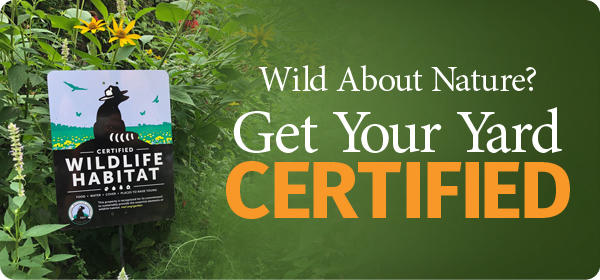Be a Song Bird Hero!

Wild About Nature? Get Your Yard Certified and Be a Song Bird Hero!
Watch our story on WLOS Asheville to learn more about our Be a Song Bird Hero program in our store. You can have your name posted on our Hero Board, AND get a free t-shirt for certifying your yard or green space with the National Wildlife Federation. Let's Save the Song Birds together, one yard at a time.
A study*, published September 2019 in the journal Science, found that the population of breeding birds in the US and Canada has dropped by nearly 30% (or 3 billion birds) since 1970. Learn more
Anyone can create a welcoming haven for local wildlife. In fact, wildlife habitat gardens support twice as much wildlife as conventional lawns and non-native plant gardens. Turning your yard, balcony container garden or work landscape into a Certified Wildlife Habitat to attract birds, butterflies, and other neighborhood wildlife is fun, easy, and can make a lasting difference. Here is what your wildlife habitat should include:
Food: Native plants provide food eaten by a variety of wildlife. Feeders can supplement natural food sources.
Water: All animals need water to survive, and some need it for bathing or breeding as well.
Cover: Wildlife need places to take shelter from bad weather and places to hide from predators or hunt for prey.
Places to Raise Young: Wildlife need resources to reproduce, and to protect and nourish their young.
Sustainable Practices: Maintain your yard or garden in natural ways to ensure soil, air, and water stay healthy and clean.
Certify your space to show your commitment to wildlife. It’s easier than you might think. Wild Birds Unlimited is a Champion Sponsor of the NWF Certified Wildlife Habitat Program. Learn more on how to certify your wildlife habitat by clicking here, https://www.wbu.com/certify-your-yard
Click HERE to download your certification checklist!
*The study is a collaboration between avian and conservation scientists, led by Ken Rosenberg from the Cornell Lab of Ornithology and American Bird Conservancy.

